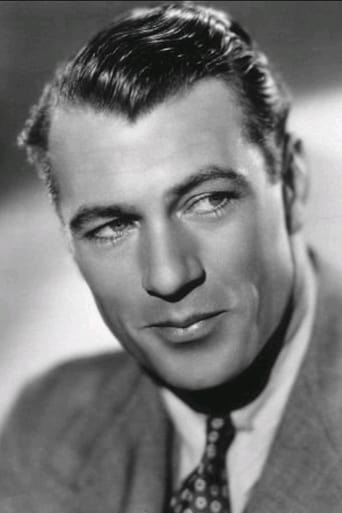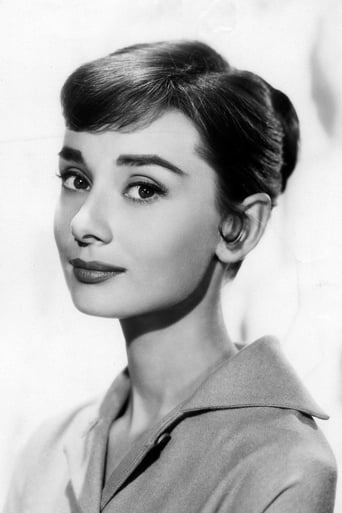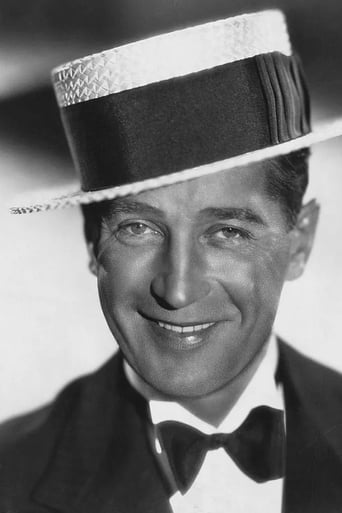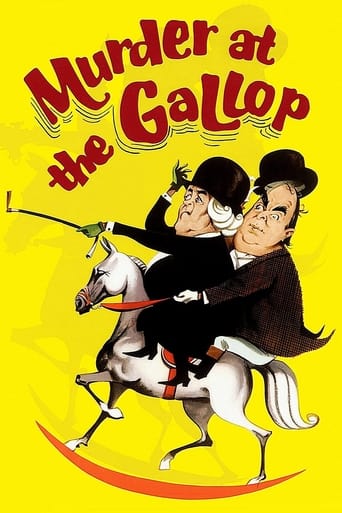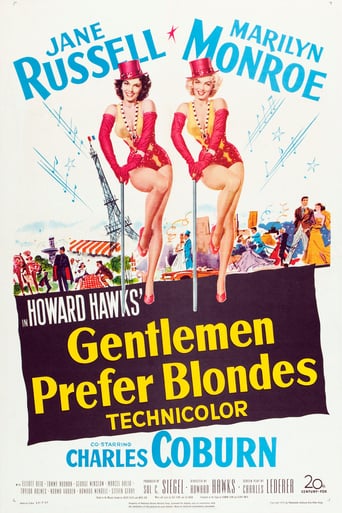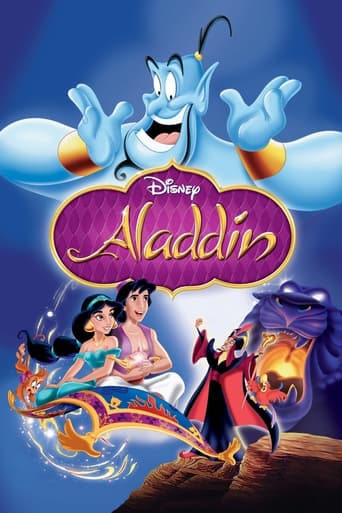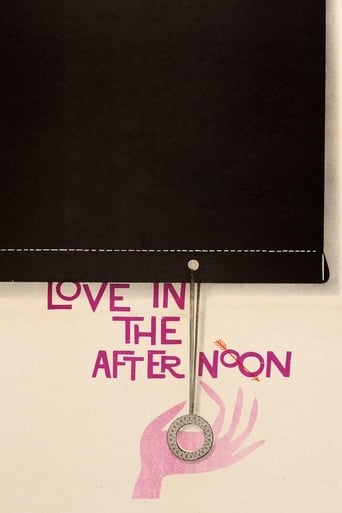
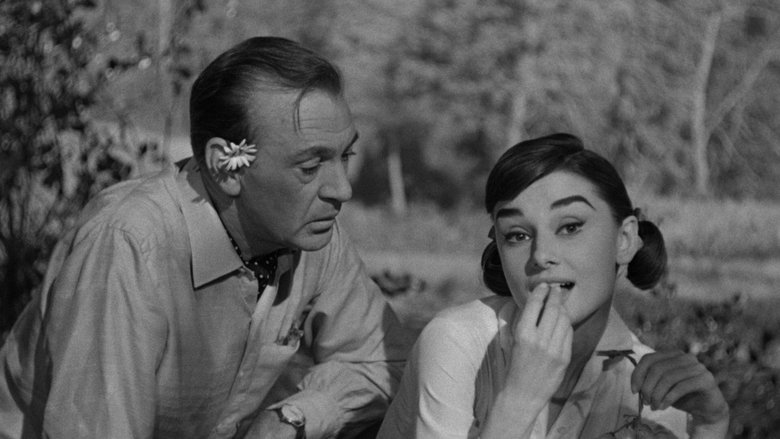
Love in the Afternoon (1957)
Lovestruck conservatory student Ariane pretends to be just as much a cosmopolitan lover as the worldly mature Frank Flannagan hoping that l’amour will take hold.
Watch Trailer
Cast


Similar titles
Reviews
This charming movie has an utterly ridiculous premise and an ending as implausible as it is predictable, and yet it works quite well. In the film, Audrey Hepburn is a young woman who lives with her private- detective father and is fascinated by his sordid cases, finding the affairs and suicides wildly romantic. She becomes involved with a particularly notorious playboy, Gary Cooper.People object to Cooper/Hepburn's 30-year age difference, but I think the problem is more Cooper than the age difference. Director Wilder originally offered the part to Cary Grant, who was only 3 years younger than Cooper and who played opposite Hepburn quite successfully a few years later in Charade. I think people would have been far less bothered with Grant in the role, both because he was a better actor than Cooper, who had limited range, and because Cooper seems somewhat weak and ill; apparently he had health problems. Even then, I didn't find him as awful as some did; he still had a certain folksy charm, even when playing a cad.The story is not, I think, entirely unrealistic. Hepburn's character was full of a foolish romanticism and Cooper's character fascinated her before they even met. If you can accept that a woman would be intrigued by an inveterate player (and ultimately there are women who are attracted to Casanovas), then Hepburn's fascination and dissembling make perfect sense, at least when aided by Hepburn's beautifully tuned performance. Young beautiful women do sometimes fall in love with powerful, much older men, even if it seems nuts that they do.Throughout the movie, I was worried that I would be aggravated by the ending I expected, but while I got pretty much that ending, I thought it actually worked well. Somehow Wilder waded into the absurdity so slowly and smoothly, and Hepburn and Chevalier as her father were so dead on, that I could believe the whole, ridiculous thing. This is also a beautifully directed movie. While it's a very slight comedy, there is a lovely formal structuralism to it. It is a movie that is clearly by a talented director, yet not a movie that is trying to show off those talents. The scene with the liquor tables is beautiful but also practical and unshowy. Everything is like that; nothing is extraneous.There is a lot to object to in this movie, particularly the rather indulgent view the film takes toward Cooper's unsavory character and the utter silliness of the whole thing. Yet Hepburn's radiance, Wilder's brilliance, and an amusing script make the movie far more enjoyable than it has any right to be.
I expected to like this film...Gary Cooper, Audrey Hepburn, Billy Wilder, Paris...But I was disappointed by its cynical manipulation and totally contrived ending.The great age difference between Cooper and Hepburn, made even more so by the fact that she's supposed to be a young student in this film (making him more like her grandfather), was remarked on, I believe, in some contemporary reviews. But this is not a reason to find fault with the relationship. It's more that it is difficult to understand how an intelligent young woman, albeit one who is somewhat naive and romantic, could be infatuated by, continue to be beguiled by, and eventually fall in love with the unpleasant lecher played by Cooper. Despite the charm that Gary Cooper has shown in many of his films, here he seems...well, tired and not really acting as though he at all believes in the rancid character he's playing, and he's right.The premise of the film is sour and cynical and the farce doesn't work. The ending injects a jarring sentimental note that only confirms the earlier implausibility of the "relationship" that the script would have you believe the two leads have. Doesn't work.Audrey Hepburn is her usual magical self, but even she can't make me believe in her character. She is certainly worth watching, however, for the moments when she is, indeed, someone who might appeal to the Cooper character as more than a one-night stand. Maurice Chevalier is surprisingly appealing here and doesn't lay on the French accent and mannerisms that he continued to polish over the years. But, again, he's done in by the script. In his very last scene in the film, he does a total flip-flop in point of view, again demonstrating the screen writers' (Wilder and Diamond) manipulation to ensure a romantically satisfying and totally unbelievable ending. So...nice musical score, lovely black and white cinematography, a charming Hepburn, an appealing Chevalier...but a Wilder misfire, big-time.
Maurice Chevalier is the detective keeping his eyes on spouses of clients who may be fooling around. Audrey Hepburn is his daughter who is a musician who dreams of Gary Cooper who is a celebrity playboy. There's also a nice supporting turn by a John McGiver as a client of Chevalier and some musicians called The Gypsies. Despite the vast age differences, I liked the romance between Coop and Ms. Hepburn what with her lies and his falling for her despite them. This marked the first collaboration between director/writer Billy Wilder and I.A.L. Diamond who eventually teamed up for classics Some Like It Hot and The Apartment, among others in later years. I really liked Love in the Afternoon so on that note, it's recommended.
Poor Audrey Hepburn. Her waif-like persona keeps the older gentlemen interested, from William Holden and Humphrey Bogart in "Sabrina", Fred Astaire in "Funny Face", Cary Grant in "Charade" and Rex Harrison in "My Fair Lady". I guess they feel she needs a father figure. Here, her papa is Maurice Chevalier, playing against type, and very amusing doing so. He's a private detective whose client (John McGiver) discovers his wife is having an affair with an American playboy (Gary Cooper). Hepburn rushes off to warn Cooper that his lover's husband intends to shoot him and as a result falls head over heels for him. This provides the funniest sequence in the film, McGiver's seemingly drunk hubby sneering like Edward G. Robinson has he creeps through the halls of Cooper's hotel. But this is where the amusement ends. The film seems to drag for the next hour and a half as Hepburn pretends that Cooper is only one in a long line of daddy types. She is never convincing in that area, which she isn't supposed to be, and Cooper's befuddled amusement only indicates that he is actually bored.This update of Ernest Lubitsch's 1930's sex comedies provides roles for two stars of some of those films, Cooper and Chevalier. This is basically an update of the character that Cooper played in the film version of Noel Coward's "Design For Living" while Chevalier ("Love Me Tonight", "One Hour With You") takes away the rascally romantic scoundrel and plays a much more serious part. He would return to the old type of roles in his next film with "Gigi". Some people may be put off by Olga Valéry as the hotel guest who keeps spanking her barking dog. She is meant to be comic relief, but the repetitive joke simply goes on too long.I've always been disturbed by the ending, always utilized in Hepburn tributes, which has an air of lechery to it.


